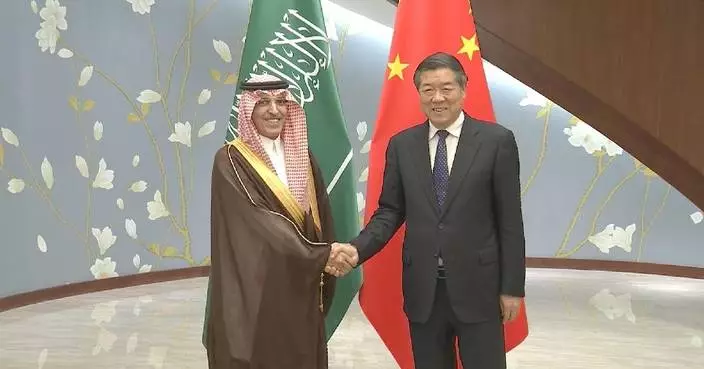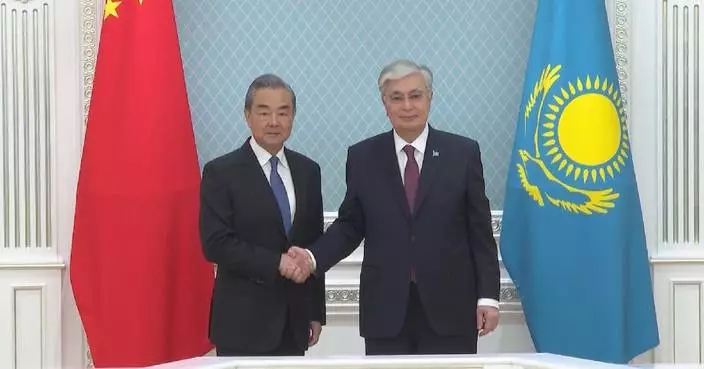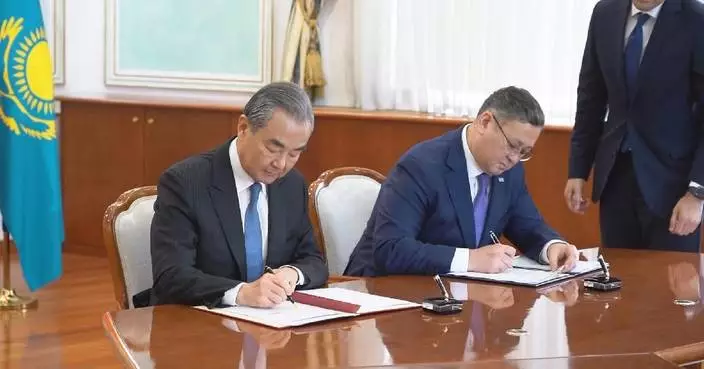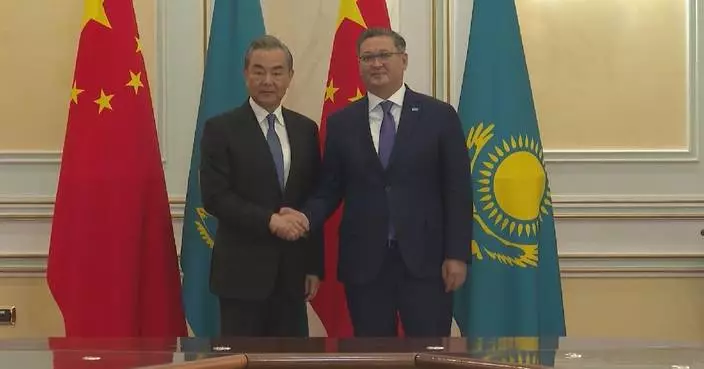Rescue service authorities in east China's Zhejiang Province have tested the effectiveness of wireless communication provided by different types of Unmanned Aerial Vehicles in emergency situations such as flood via a large-scale drill.
As an eastern coastal province, Zhejiang frequently faces natural disasters such as typhoons and floods, resulting in the disruption of roads, electricity, and internet connectivity, which poses significant challenges for emergency rescue operations.
Kicked off on Friday, the province's "Emergency Mission 2024" rescue exercises emphasize the use of UAVs to establish communication links, ensuring precise decision-making and swift rescue efforts during disasters.
One of the key assets utilized in these exercises is the Wing Loong UAV, an unmanned helicopter deployed from surrounding areas that reaches isolated villages within two hours. This UAV not only provides instant feedback but also rapidly restores mobile phone signals within a 50-square-mile radius using its onboard communication base station, thus bridging the gap between disaster-affected communities and rescue teams.
The duration of UAV flights varies depending on their size, with larger UAVs like the Wing Loong boasting up to 20 hours of continuous operation compared to smaller counterparts with durations ranging from three to six hours. This year, the emergency rescue platform will be equipped with six sets of large fixed-wing UAVs, 19 sets of unmanned helicopters, and 213 sets of UAVs with composite wings, establishing a network of UAVs operating at different altitudes to restore communication in disaster-affected and isolated areas.
"These UAVs will be mobilized in provinces and cities, facilitating the resumption of public and private command networks within five hours in regions that are prone to being thrust into communicational isolation by disasters," said Zhang Binchuan, ombudsman of safety production at Ministry of Emergency Management.

Zhejiang rescue agency tests wireless communication provided by UAV in emergency situations
A Chinese mainland spokesperson said Lai Ching-te has sent "a dangerous signal" of seeking "Taiwan independence" and making provocations to undermine cross-Strait peace and stability in his speech upon assuming the role of Taiwan region's new leader on Monday.
Chen Binhua, a spokesperson for the State Council Taiwan Affairs Office, described Lai's speech as one that stubbornly followed the "Taiwan independence" stance, wantonly advocated separatism, incited cross-Strait confrontation and sought independence by relying on foreign support and by force.
Chen said the mainstream public aspiration on the island is for peace and development, instead of war and recession, while Lai has ignored the public opinion, exposing his nature of being "a worker for Taiwan independence."
The current complex and grave situation across the Strait is rooted in the fact that the Democratic Progressive Party has stubbornly stuck to the separatist stance of "Taiwan independence," rejected the 1992 Consensus that embodies the one-China principle, and kept colluding with external forces to make provocations of seeking "Taiwan independence," Chen said.
Taiwan is an inalienable part of China, said Chen, stressing that "Taiwan independence" and peace across the Strait are incompatible as fire and water.
"We have firm determination to resolve the Taiwan question and realize national reunification; we have strong capabilities to safeguard national sovereignty and territorial integrity; and we will take resolute actions to fight separatist activities seeking 'Taiwan independence' and external interference," he said.
"We will never tolerate any 'Taiwan independence' separatist acts in any form," said Chen.
China must and will be reunified, Chen stressed. No matter how the situation on the island changes and who assumes the regional leader, it will not change the fact that both sides of the Strait belong to one China, or impede the historical trend of national reunification, he said.
"We will fully implement the Party's overall policy for resolving the Taiwan question in the new era, unswervingly uphold the one-China principle and the 1992 Consensus, work together with Taiwan compatriots to promote the peaceful development of cross-Strait relations and cross-Strait integrated development, and resolutely advance the reunification of the motherland," said Chen.

Mainland says Lai sends "dangerous signal" in speech as Taiwan's new leader










